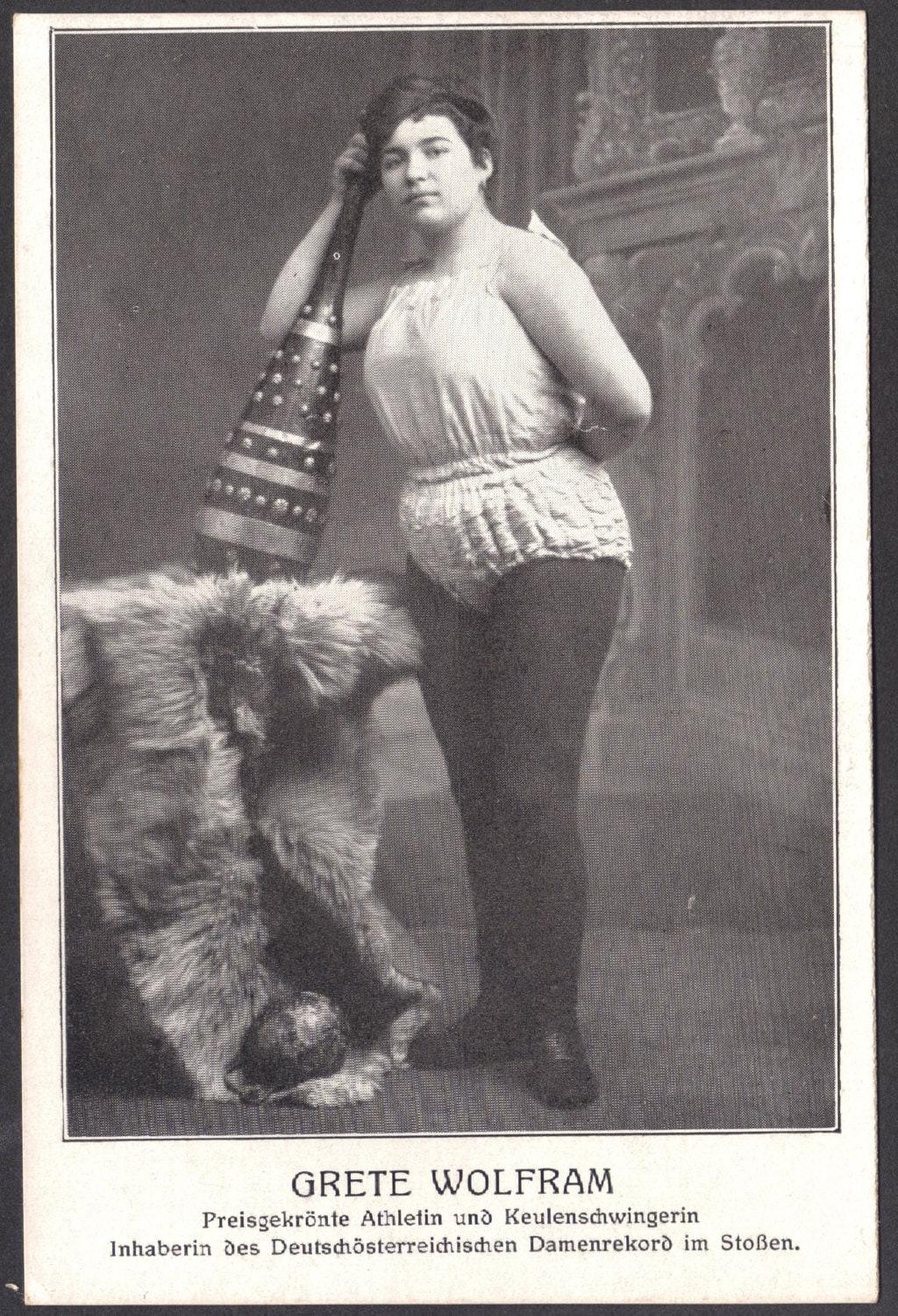 |
| AVAILABLE FOR PURCHASE Grete Wolfram |
In the process of researching this card, we came across some very interesting, though tragic, information.
There was a Margarethe Wolfram, who used the shortened name Grete, born in Vienna in 1890. So, the name, geographical location, and approximate age add up well.
Even later in life, after marriage to a Dr. Hans Kernegg, and having herself earned a PhD., or having become a doctor of some kind, she called herself Dr. Margarethe (Grete) Wolfram Kernegg, keeping her earlier name intact, just as someone might who had earned some prominence before marriage and for whom the rite of marriage did not mean the abandonment of individuality.
In the early 1930s, this "Grete" wrote articles for a Sunday newspaper called "Das Wort Der Frau," or "The Woman's Word," "an independent Sunday newspaper for the cultural, social and economic interests of women [offering] practical advice for house, home and kitchen, health, socializing, sports and fashion." This magazine was closely associated with activist women's organizations throughout the world, at a time when women were struggling hard for equality, and quite frankly, it is our feeling that a young woman who became the women's club swinging champion of Austria and Germany, in those days, was already in some respects, in the vanguard of the women's movement. So here we have another point of likely connection.
Dr. Grete Wolfram Kernegg was an Austrian Jew. Her husband was also an Austrian Jew. Dr. Hans Kernegg's name appears in numerous references as being associated with Jewish activist organizations who agitated for Jewish rights against 1930s Nazi policies in Hitler's Germany, (something about which one hears very little!), and Grete Wolfram Kernegg's newspaper, Das Wort der Frau, is also mentioned in articles concerning Hitler's policies and attitudes regarding the rights of women in Europe during this period.
Our research indicates that at some time, probably in the mid to late 1930s, Grete and Hans fled Austria or Germany and settled in Nice, France.
Later in the war, Germany actively occupied that part of France, and as part of their "Jewish policies" arrested, or caused to be arrested, French Jews, and other Jews, who had taken refuge there.
It was in 1944, in the closing days of the war, that Grete and Hans were arrested and deported to Poland, to the death camp at Auschwitz, where Dr. Hans Kernegg (according to Grete's later testimony), was immediately murdered in a gas chamber.
Grete managed to survive the camp, and later emigrated to Australia, where she passed away, in Sidney, in 1981.
We have not yet been able to, and may never, definitively show that these two women are the same person, but no other Grete Wolfram appears in our researches, and it feels very likely that they are one and the same person.
We love what we do here at Red Poulaine. We love the romance, the excitement, and the strange that sometimes surrounds the images we find, research, and exhibit for sale. But we cannot say that we loved this particular experience. To see the pride of success, born of great effort, courage and ability, in this old fashioned and in some ways amusing image of this vital young woman, and to think that as a result of ignorance, greed, hatred and prejudice, she might have suffered so tragically later in life, is terribly unpleasant, but, for us, makes the image all the more meaningful.

No comments:
Post a Comment